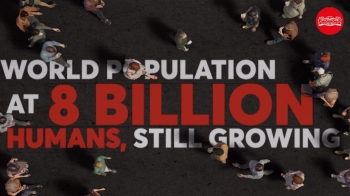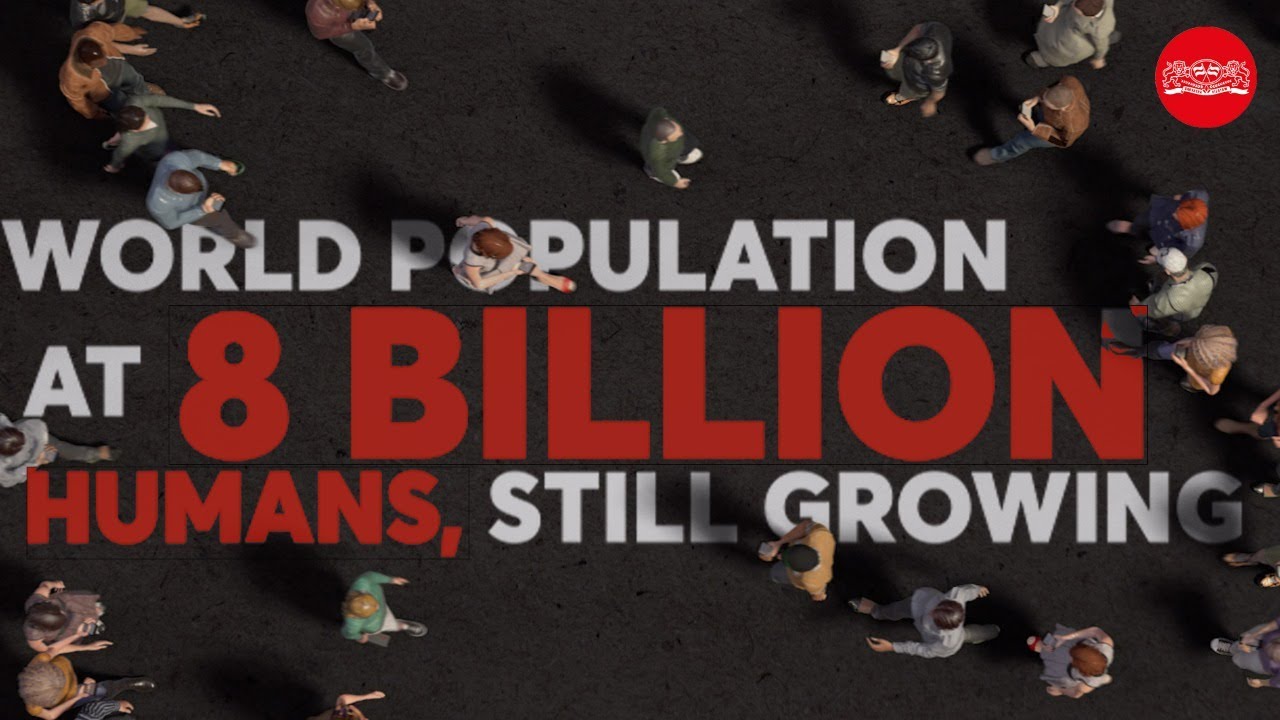
.jpg) Dr. George Arickal
Dr. George Arickal

According to the recent reports in November 2022, eight billion (8000000000) people live on this globe. Between 385,000 and 400,000 babies are born every day; about 16,300 babies every hour. That's about 270 babies per minute and between four and five per second. There are about 164,380 deaths per day. That makes 60,000,000 deaths a year in the world.
Latest estimates by the United Nations (UN) indicate that the number of people on earth will increase to around 8.6 billion in 2030. By 2050 the estimated number will grow to 9.8 billion. The UN assumes that more than half of the global population growth by 2050 will take place on the African continent. Much of the population growth will be concentrated in poorer countries. These include African countries with particularly high birth rates such as Niger, Ethiopia, Tanzania and the DR Congo, as well as Asian countries with large populations like India, Pakistan and Indonesia. India would overtake China to become the world's most populous country next year. Europe is the only region in the world whose population is projected to decline by 2050.
Many sense a great danger in the population development and there is even talk of the population explosion as the ticking bomb. Of course, population growth is an extraordinary challenge for humanity, because even today's world population is not able to meet its most important basic needs. The struggle in distribution intensifies when the number of those requesting the resources to survive increases. This development can be registered in the growing number of refugees. Many are afraid of this scenario and advocate lowering the birth rate by humane and inhumane means. Their strategy seems to be to reduce the number of poor instead of fighting poverty. It should be remembered that development is the best pill and that we should focus on tackling the real causes of poverty, hunger and disaster. Precisely these findings of the international community led to the Millennium Goals and the Agenda 2030 based on them with "Sustainable Development Goals".
Leave no one behind: According to this motto, the UN launched the Agenda 2030 for Sustainable Development in September 2015. The goal of the agenda is to make global developments so sustainable by 2030 that even the poorest people in the world have prospects in life. This agenda is pursued by 17 sustainability goals taking the relevant dimensions of development into account. Ending poverty and fighting hunger through food security are top priorities. Inclusive and equitable education, health through access to good medical care, healthy nutrition, clean water and good air, equality between women and men, affordable & clean energy, sustainable economic growth, sustainable and efficient industry, humane working conditions, modern infrastructure, fair distribution of the income, sustainable cities and municipalities with affordable housing and a sustainable and integrated urban development policy, protection of life under water, intact ecosystems, good governance without corruption and last but not least the control of climate change are among the integrated sustainability goals of the Agenda 2030. A global partnership is called for to achieve these goals.
During the first few years after the adoption of the Agenda 2030, there was definitely success in realizing individual goals. The global discussion raised awareness of the challenges and prospects for action. Improvements were evident in the areas of nutrition, education, health and even poverty reduction. Unfortunately, this positive trend was stifled by the global pandemic. The former German Minister for Development Cooperation Gerd Müller says: “In many developing countries, the pandemic has led to a massive poverty, hunger and economic crisis. More than ever we have now to stick to our goal of a world without hunger and poverty”.
The situation became worse when the devastating war in Ukraine with horrible consequences joined with the pandemic. Due to globalization and global interdependence, even a regional war -- in contrast to earlier times -- causes the effects of a world war. Intensified crises are reflected in the sectors of energy, food, agriculture, industry, employment and in the increase in the price of essential products. Not to be neglected, of course, are the people who die in this war and those who become refugees. In 2030, the decision-makers in the process of the agenda for sustainable development goals may have regretably to come to the conclusion that the tunnel to the light is lengthening. They have to agree upon a new period, especially because of the uncontrolled continuation of the dangerous climate change.
We experience more and more stormy years. The Earth's atmosphere is becoming more toxic; the ice is melting, global heat and sea levels are rising, many islands and some sea regions are disappearing from the surface of the earth. The dry period is getting longer and longer, the desert is growing, floods are destroying the harvest. Pollution is threatening habitat, water is becoming polluted and many bird and plant species are disappearing. The world is indeed heading towards a climate catastrophe.
Increasing poverty, hunger, disease, an increase in child mortality, distribution fights and mass exodus are some consequences of the threatening climate change. Specialist organizations of the UN estimate that by 2050 more than a billion people will be displaced by climate-related migration alone. The irony of history is that the victims of the climate catastrophe are precisely those innocent people who least cause this development. Every individual, every social unit, every municipality and every country has its obligations and opportunities to contribute to climate improvement and environmental protection. However, this does not replace a global climate policy agreed by the international community, because the climate knows no homeland, no leading culture, no religion, no race, no gender, no color and above all no national borders. The implications are global and they seek global solutions; enough reason for the international community to act together.
On November 6, 2022, the 27th UN Climate Change Conference (COP 27) began in Sharm el-Sheikh, Egypt. For more than two weeks, around 40,000 participants from almost 200 countries struggled to find solutions and concrete agreements in the fight against climate change. In the final declaration, 200 states reaffirmed the decision to reduce the burning of climate-damaging coal. There is no talk of stopping fossil energies such as oil and gas. The 1.5 degree target remains unchanged. The statement falls short of proposals from many states, climate activists and environmentalists. An end to dependency on dirty energy sources is for them imperative. For the first time COP 27 agreed on a common "Compensation fund" to compensate for climate damage in poorer countries. The amount of the fund and the individual contributions of the countries will be clarified later.
COP 27 revealed clear differences in the interests of individual countries in the area of climate policy. The industrial nations like the USA or Germany have achieved their economic growth with years of use of fossil energies causing severe damage to the global climate. It is easier to maintain their existing prosperity with the use of regenerative energy. Poorer countries like India, which find themselves on the path of necessary growth in the midst of enormous challenges, depend on the use of all energy sources. Abandoning fossil fuels and thus accepting a reduction in economic growth would have a toxic effect on the social climate although it would be beneficial to climate control. The decision-makers face in this case a crucial dilemma. Even a green Federal Minister of Economy in Germany decided to extend the use of some fossil energy sources in the midst of the energy crisis. With this decision he may have intended to reach social consensus. The developing countries have to take a long time to set up sufficient structures for using renewable energy sources., The climate is, however, not interested in such emergency situations. Being angry at man's plunder of creation, climate change will continue at an accelerated rate. Enhanced and sincere cooperation of the international community is more necessary than ever.